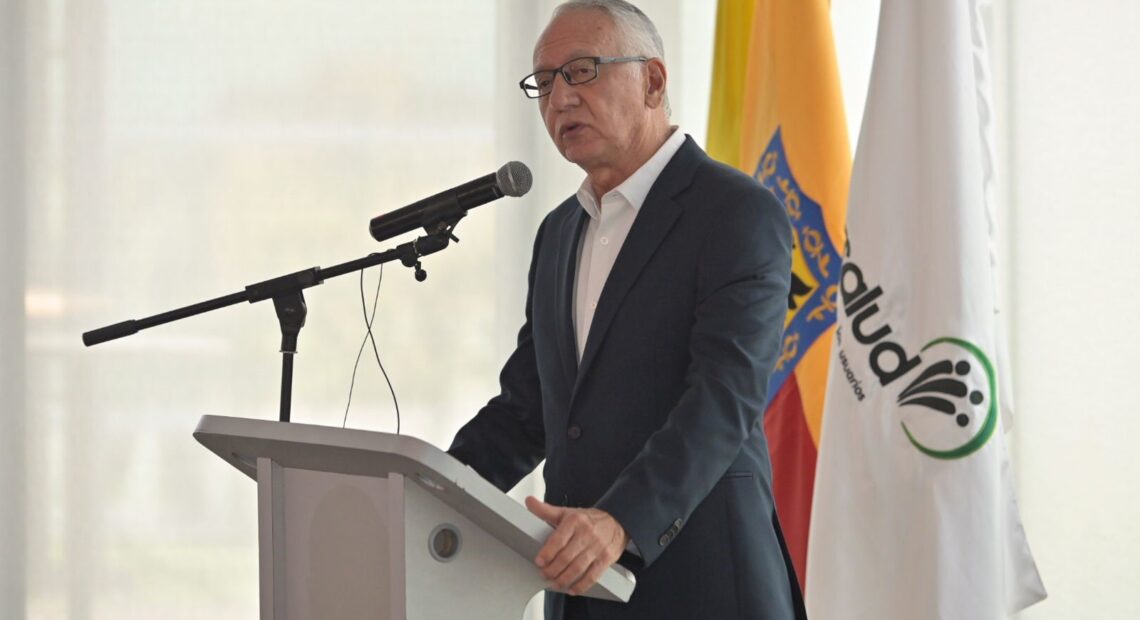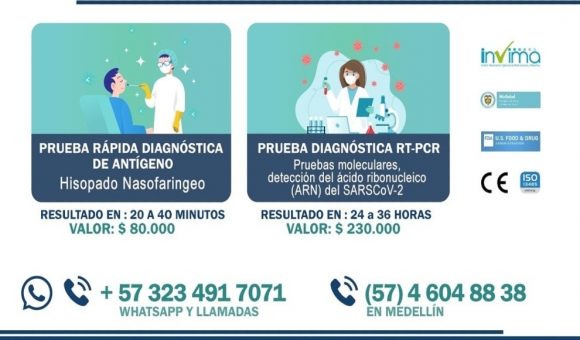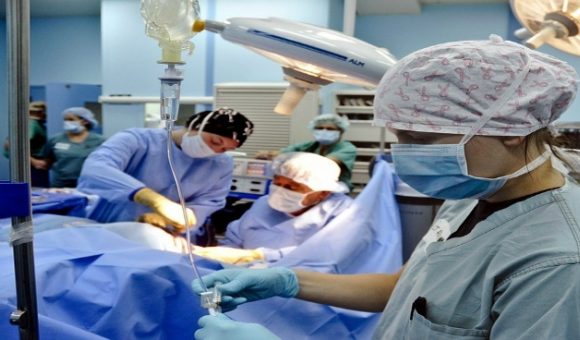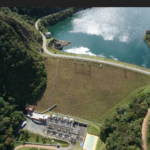Colombia’s Sura, Sanitas, Compensar EPS Networks Warn Health Ministry of Imminent Financial ‘Collapse’

Medellin-based private-sector health-network provider EPS Sura along with EPS Sanitas and Compensar EPS jointly announced in a new letter to Colombia Health Minister Guillermo Alfonso Jaramillo (see photo, above) that they face shut-down as early as late September unless the Health Ministry takes urgent measures to shore-up their deteriorating financial situations.
If changes aren’t forthcoming quickly, then 13 million Colombians affiliated with these three giant health-service-payment networks would be left stranded.
“If the pertinent measures are not taken, it will become increasingly difficult to continue providing the services — and we see serious difficulty advancing with the operations after the month of September of this year,” according to the companies’ joint letter.
“Since the last two years, a capital deficit of close to COP$400 billion [US$97 million] has been depleted in the case of EPS Sura, along with COP$415 billion [US$100.8 million] deficit in the case of EPS Sanitas and COP$278.7 billion [US$67.7 million] for Compensar EPS,” according to the three companies.
Under Colombia’s mixed public-private health system, the national government assigns a “unit of payment by capitation” (UPC) annual value for the public or private “Entidad Promotora de Salud” (EPS) health services networks — aiming to cover a year’s-worth of likely hospital/clinic/doctor/ billings to the EPS networks.
This UPC formula enables payments from both public and private sources –from individuals, companies, workers and government welfare agencies – dedicated for Colombia’s national mandatory health plan coverage (“POS” in Spanish initials) scheme.
This scheme includes both the “contributory” sector (worker, individual and company-supported payments supporting the UPC) as well as the “subsidized” sector (for patient services covered entirely by government welfare agencies).
But according to the joint letter from the Sura, Sanitas and Compensar EPS networks, “the value of the UPC is insufficient to meet the health benefits plan.
“It is estimated that the value of the UPC in 2022 was insufficient by 8%, compared to the increase in the value of the services covered by the EPS’s. Likewise, the adjustment of the UPC in 2023 did not correct this problem. To do so, the UPC must have an additional adjustment of 5.7%,” according to the companies — citing a new study by Medellin-based EAFIT University.
What’s more, “an equitable redistribution of resources among the responsible [EPS] actors has not been achieved. By not adjusting the UPC for certain network health-service conditions (epidemiological profile), several EPS networks today present solvency problems as a consequence of this asymmetric concentration of cost burdens.
“The EPS’s with less costs show better financial results. An adjustment of the UPC for health conditions [in certain higher-cost EPS networks] would not mean an overall increase or decrease in the average UPC for the health sector. Rather, it assumes an equitable distribution of resources among the responsible actors – a zero-sum effect,” according to the joint letter to the Health Ministry.
What’s more, several EPS networks today suffer from prior-year budget deficits, plus unrecovered costs for Covid-19 vaccinations and treatments, as well as “pending compensation processes,” according to the letter.
“We know that these problems are not only due to this last period, but that they have been accumulating for several years due to different cost situations [of various EPS networks]. But today, these urgently need to be addressed and resolved to avoid collapse and irreversible damage that impacts the population and the system,” the letter adds.
Health Minister Repeats Petro Demagoguery
Meanwhile, Colombia’ s Health Minister Guillermo Alfonso Jaramillo in an August 17 conference organized by Supersalud repeated much of the same anti-EPS demagoguery spouted by Colombia’s left-wing President Gustavo Petro, aiming to justify a proposed government nationalization of the health sector, along with abolition of EPS networks.
Such a scheme, if enacted, would return Colombia to the horrendous government-monopoly system that only ensured lengthy service delays, mediocre care, absence of many medications, lack of investment in modern equipment and lack of technology innovations – all of which existed prior to a 1991 national reform law that enabled private-sector competition, according to critics.
Today, legislation pushing the Petro health “reform” nationalization scheme is currently stalled in the Colombian Congress — following recently unveiled narco-money scandals penetrating Petro’s 2022 election campaign, which destroyed support for Petro among several of his key allies in Congress.
But Minister Jaramillo used anti-capitalist demagoguery in his speech last week, aiming to defend the Petro “reform” proposal.
“We may not achieve the Health Reform because today’s [total EPS cash-flow] interest is COP$86 trillion pesos [US$20.9 billion]. Tomorrow it’s COP$92 trillion or COP$93 trillion pesos [US$22.3 billion to US$22.6 billion],” according to Jaramillo — conveniently ignoring that similar health-services cash flows also would be required under some government-monopoly regime, but without any of the innovations inherent in private-sector competition and also enabling much more corruption by government-monopoly political players, as in the pre-1991 system.
“These [EPS cash flow numbers] are supremely powerful figures. And EPS’s are powerful because they manage that money that belongs to us, belongs to the people who suffer the needs,” Jaramillo claimed.
“I do not want be contentious [sic], but I have to say these things that are real. If health today were not a business, we would not be debating here,” Jaramillo concluded.
Supersalud Nationalizes Antioquia’s Savia Salud EPS
On a related front, Colombia’s national Health Superintendent (“Supersalud”) earlier this year took-over the “Savia Salud” public EPS network mainly owned-and-operated by the Antioquia departmental government along with private-sector worker-benefits organization, Comfama.
Of the 1.68 million people affiliated with Savia Salud, 92% were in the subsidized regime (entirely paid-for by government welfare), according to Supersalud.
But because of the recent financial collapse of this mainly subsidized-sector EPS, Supersalud “ordered the immediate seizure of assets and related businesses of Savia Salud after finding serious and repeated failures in the care of its more than 1.6-million users and in the management of public resources of the health system,” according to the agency.
“This decision comes after six years in which this EPS– operating in 124 municipalities of Antioquia — was under a special surveillance measure and did not comply with all the orders established by Supersalud to improve the performance of its financial, technical, scientific, administrative and legal indicators.”
The control agency also cited an “increase in complaints from EPS users to Supersalud, mainly related to the lack of opportunity in the allocation of medical consultations, specialized medicines, barriers in the delivery of medicines and the difficulty to access imaging services.”
The agency ultimately found that Savia Salud “does not meet the established goals, standards and indicators of coverage and health risk management for the expanded program of immunizations, detection of cervical, uterine and breast cancer, and detection of alterations during pregnancy,” according to Supersalud.
















